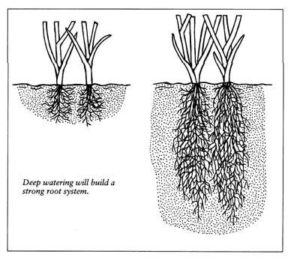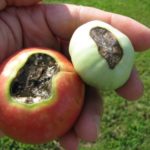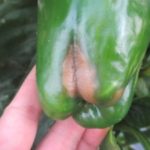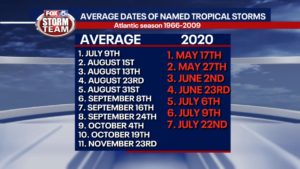*The Board of Directors typically meets the first Tuesday of most months at the Sears Shelter at McPherson Park; however, our recent meetings have been virtual and will likely continue for the foreseeable future. Members are welcome to attend board meetings. Please email northmaincomm@gmail.com for the location and to find out if we are meeting that month.
Plans for School this Fall
The uncertainly about school reopening this fall has everyone concerned and there are strong feelings on both sides. Greenville recently released their guidelines for reopening. Students will have the option of in-person classes, but they will be informed week-to-week on the schedule depending on conditions stemming from the COVID-19 pandemic. And like everything else these days, nothing is 100% written in stone.
 The released plans will allow families to plan what the next school week holds, according to Tim Waller, GCS director of media relations. Students will be assigned specific colors depending on their last names.
The released plans will allow families to plan what the next school week holds, according to Tim Waller, GCS director of media relations. Students will be assigned specific colors depending on their last names.
“On weeks when conditions permit, all students in all color groups will attend school all five days. But on weeks when different factors come into play (high COVID-19 spread-rate, large number of teacher/student absences, etc.), students in all color groups will either not attend in-person classes or they may attend one day that week, depending on conditions.” Click here to read more and to see charts depicting the overall plan.
NMCA Coming Events
All NMCA events, including the annual social, are still on hold due to the COVID pandemic. We will keep you updated when we feel it is safe to resume activities without risking the health and safety of the community.
That said, the NMCA Board members continue to participate in many City-led WEBEX virtual meetings on a wide range of matters of importance to the community. Similarly, we continue to highlight outcomes from those discussions and identify opportunities for members to engage, as appropriate. The upkeep and improvements to the North Main Rotary Park and progress in repairing the Bobby Pearse Community Center remain a priority.
Due to COVID and the lack of social activities, NMCA is “carrying dues over” to 2021. We still have decals for cars. If anyone one would like one or more, please send an email to northmaincomm@gmail.com
Development Update and Other City News
NorthPointe: Atlanta-based multifamily owner and developer ECI Group and its partner Central Realty Holdings recently announced NorthPointe Apartments’ first move-ins. The complex is part of the mixed-used NortePointe development located at 503 E. Stone Ave. in Greenville.
In addition to the apartment complex, NorthPointe will feature Barberitos Southwestern Grille & Cantina, RockBox Fitness, Wow! U’ve Got Nails Salon and Harris Teeter & Pharmacy. Harris Teeter had originally planned a mid-summer grand opening, but that has obviously been delayed. They are currently hiring as indicated by billboards at the site. We still do not have an opening date.
City Infill Review Committee Update: North Main has a resident who is a member of the Committee. We asked him for an update on what has transpired to date.
“The infill review committee has 12 representatives from various neighborhoods and some professional people such as architects and builders. There are 4 city staff supporting and facilitating the meetings. We have had 5 meetings so far and have reviewed the following subjects:
- Existing infill ordinance and potential areas of improvement such as scale, mass, and height
- Storm water status
- Tree canopy status
- Missing middle housing which is a presentation made to the City Council about alternatives to single family housing such as duplexes, triplexes, and quadplexes built in a manner to fit the surrounding area
The City is very concerned about the increased storm water runoff and the loss of tree canopy over the past 10 years. The storm water increase is from a loss of pervious surface of 72% in 2001 to 56% in 2017, and the tree canopy loss is from 41% in 2001 to estimated 25% – 31% in 2021.
There has been one survey sent by the City, and the NMCA sent the link out twice to association members so that everyone can have a chance for input. The goal is to have a revision to the infill ordinance by the end August or early September if possible for review.”
Stone Ave Ready for a Makeover: The City will spend the next couple of months improving Stone Avenue’s infrastructure. In the next week or so, more on-site cameras will be installed. This smart technology helps with traffic flow (Note: state law prohibits cameras from being used for running red lights or speeding). Following the cameras, ADA ramps along the road will be improved. And, finally, patching, milling and paving will occur in August. Though that is good news, we must continue to work to slow the cars down! (Email.District 1 Update, Council Member John DeWorken)
Stone Academy Gets New Sidewalks: Thanks to the leadership of former three-term City Council member Amy Ryberg Doyle, who represented the North Main area for 12 years, and other community leaders, including Susan McLarty and PTA members, Stone Academy has some new sidewalks!
The sidewalks around Stone Academy are part of the “Safe Routes to School” grant with the SCDOT, which is awarded to schools that demonstrate the need and have the established key partnerships to carry it through. According to the USDOT, Safe Routes to School (SRTS) promotes walking and bicycling to school through infrastructure improvements, enforcement, tools, safety education, and incentives to encourage walking and bicycling to school. Nationally, 10%–14% of car trips during morning rush hour are for school travel. SRTS initiatives improve safety and levels of physical activity for students. (Email: District 1 Update, Council Member John DeWorken)
New Greenlink Operations and Maintenance Center: You may have read last month that Greenville County has transferred land located at 205 Arcadia Drive to the City to support construction and operation of a new Greenlink Operations and Maintenance Center. It will replace the outdated one located at 151 Augusta Street (near Fluor Field). This step was extremely important to enhance Greenlink’s ability to expand its offerings to the City and County, as well as the City’s plans to enhance the West End. The new location is north of Rutherford Road and Magnolia Place Apartments, west of Worley Road.
Greenlink Director James Keel and Council Member Dorothy Dowe approached NMCA leadership in February to assist in sharing information with the North Main community, when appropriate. NMCA will host one or more virtual or in-person meetings for residents of North Main and other surrounding neighborhoods, when appropriate.
For now, there is background information and a compilation of Frequently Asked Questions, and a project schedule on this Greenlink webpage. https://www.greenvillesc.gov/1725/Maintenance-Facility-Project. Preliminary site design and building design is scheduled for completion by the end of 2020. The conduct of public outreach and public feedback is expected in the first quarter 2021.
A resident has asked us to relay the following concern: “I’ve been walking several miles a day in the neighborhood and I often see yards with several Greenville Journals laying out, many waterlogged. Please encourage neighbors to pick up those papers. If they don’t wish to read them (I find them usually very informative), then just put them in the trash. By leaving the papers to pile up, you signal two possible things: no one is at home, making your home a target for vandals or you are unwell and cannot get out to pick up the paper (a sign that maybe someone should check on your welfare). In any case, uncollected papers spoil our otherwise lovely neighborhood.”
Our suggestion is: if you don’t want to read it, at least pick it up and dispose of the paper in your recycle bin and you can recycle the plastic bag at a location that accepts them such as your grocery store. Do NOT put in the recycle bin! They really can be an eyesore when left out for days.
Have You Completed the 2020 Census?
It’s not too late! The Census Bureau has extended the window for field data collection and self-response to October 31, 2020, which will allow for apportionment counts to be delivered to the President by April 30, 2021, and redistricting data to be delivered to the states no later than July 31, 2021.
When you respond to the census, your answers are kept anonymous. They are used only to produce statistics. At the federal level, population figures from the census help determine how many congressional seats and Electoral College votes each state gets and will also influence the distribution of $1.5 trillion in federal spending.
Census data is also used by both state and local governments and the private sector to plan infrastructure projects, school locations and business openings and expansions, among many other different types of projects.
Surge in Anxiety and Depression from COVID-19
Everywhere you look, you’re likely to see people facing an unprecedented amount of stress. With the COVID-19 pandemic comes a barrage of daily health anxieties, rising death tolls, increasing unemployment numbers, and physical isolation — on top of strong feelings of frustration and anger as people protest against injustice across the country.
During this time of grief and change, many — to put it simply — just aren’t feeling great. While feelings of anxiety and concern are normal during a crisis like this, this stress can impact people in a variety of ways. Overall, feelings of depression and anxiety are higher than ever before. There are also smaller manifestations and symptoms of stress, including headaches, inability to focus, physical aches and pains, and lack of sleep.
Research suggests that the part of the brain called the limbic system is hyperactive during times of negative emotions and stress. The limbic system acts as a control center for feelings and reactions. For example, the well-known fight or flight response begins in the limbic system, triggering feelings of anxiety and fear.
Having trouble thinking, planning, and getting things done recently? It could be related to stress from the pandemic. In many cases, when emotions become overblown, parts of the brain in charge of executive function tend to not communicate as well with the emotional parts of the brain — the limbic system is overriding the executive functioning circuit. This can cause people to have trouble focusing or controlling impulses. (Excerpted from https://www.pennmedicine.org/news/news-blog/2020/june/coping-with-covid-stress)
Coronavirus: Exploiting Nature ‘Drives Outbreaks Of New Diseases’
New evidence has emerged of a link between human exploitation of nature and pandemics. Close contact with wild animals through hunting, trade or habitat loss puts the world at increased risk of outbreaks of new diseases, say scientists. Coronavirus is thought to have originated in bats, with other wild animals, possibly pangolins, playing a role in transmission to humans. There are strong indications of a wildlife source and a link to trade.
In the latest study, researchers trawled scientific papers for reports of diseases that have crossed from animals to humans, then combined this data with information on extinction risk compiled by the International Union for the Conservation of Nature (IUCN). Wild animals at risk of extinction due to human exploitation were found to carry over twice as many viruses that can cause human disease as threatened species listed for other reasons. The same was true for threatened species at risk due to loss of habitat.
“As natural habitat is diminished, wildlife come into closer contact with people,” Dr Christine Johnson of the University of California, Davis, US, told BBC News. “Wildlife also shift their distributions to accommodate anthropogenic activities and modification of the natural landscape. This has hastened disease emergence from wildlife, which put us at risk of pandemics because we are all globally connected through travel and trade.”
“Exploitation of wildlife, which has caused once abundant wildlife to decline in numbers, through hunting and trading in wildlife, have endangered species survival and also put humans at risk of emerging infectious disease,” she said.
Scientists have long drawn attention to human diseases that have originated in animals, including Sars, Mers and Ebola. In the wake of coronavirus, there is growing awareness that human health is linked both with animal health and the health of the planet as a whole.
A wide range of organizations are calling for curbs on wild animal trade to reduce risks to human health. Dr Johnson said wild animals sold in busy markets where animals and people mix present an opportunity for diseases to jump between species that would normally never come together in the natural world. https://www.bbc.com/news/science-environment-52204724
.
Summer in Your Yard
Hard to believe it’s almost August. Your fescue lawn may be a little thin (after all, it’s a cool season grass). If you plan to plant trees or shrubs, start planning now, but late fall and winter are the best times to plant. And this is a great time to start thinking about what bulbs you want to plant this fall.
Hot, dry summer months are some of the most stressful times for plants in the landscape. One of the most common problems seen is improper watering. Without adequate moisture, plants cannot function normally and can become  predisposed to other stresses in the environment, such as winter injury or diseases. Particularly susceptible to drought damage are plants that have developed shallow root systems due to improper watering practices. Make sure you are following proper irrigation practices.
predisposed to other stresses in the environment, such as winter injury or diseases. Particularly susceptible to drought damage are plants that have developed shallow root systems due to improper watering practices. Make sure you are following proper irrigation practices.
Apply about an inch of water per week. Usually this can be done by watering twice and applying at least 0.5 inches each time. This amount should moisten the soil to a depth of 4 to 6 inches. Early morning is the best time to water when there is less evaporation. (And check your system often as power ‘blips’ in the summer can wreak havoc on timers.) There is a popular misconception that landscapes should be watered daily – after all, plants use water every day. This idea completely ignores the fact that soils hold water. Stretch the interval between each watering to encourage development of deep, extensive roots. If we need one inch of water per week and we irrigate daily, we will in effect be applying 1/7 inch (0.14 inches) of water each day, wetting the soil to a depth of less than one inch. While this promotes growth of weeds, it encourages shallow rooting and water will never reach the roots of shrubs or trees unless their roots are very close to the surface, in which case you may see the grass suffer. That is why a good rain always seems to help everything look better.
Can you prune plants in this hot weather? It depends on the plant and location, but generally you don’t want to do heavy pruning this time of year. The lower leaves that are exposed are not acclimated to that hot sun! For further information on suggested pruning times for selected flowering trees and shrubs, refer to the fact sheet, HGIC 1053, Pruning Shrubs.
Growing Your Own Vegetables
Not surprisingly, there has been a surge of people interested in growing their own food due to the COVID pandemic. Seed companies have been flooded with orders for seeds. It’s not only for the nutritional aspect of growing food, but for the therapeutic aspect of getting outside and working in the soil and nurturing plants…for young and old. But for newbies, it’s not always that easy.
Because of a lack of space, many choose to grow vegetables in containers but it’s very hard to keep them watered enough to prevent problems, especially during this current heat wave. Depending on the size container, they may need water every day or even twice a day. Container medium needs to be porous because roots require both air and water. Packaged potting soil available at local garden centers is relatively lightweight and may make a good container medium. Make sure the container is large enough to contain the roots and has drainage holes. Most vegetables will need at least 6 hours of sun but remember how hot it can be if that container is on a concrete patio. Small plants like lettuce, radishes, and 
 even carrots are fairly easy. The fruiting vegetables like tomatoes and peppers can be trickier in containers. If your plants are turning yellow, they may need fertilizer. Watering often will wash out fertilizer in the soil. But don’t get heavy handed. Too much nitrogen may cause plants to stretch and become more vegetative, producing less fruit. One of the major problems we see in container vegetables is blossom end rot. This is actually a lack of calcium but it’s caused by inconsistency in moisture. Calcium is carried into the plant with water via the root system and if roots are damaged by lack of water or too much water, the result will be a lack of calcium in the plant rotting at the blossom end of the fruit. The photos show BER in tomatoes and peppers. This cannot be overcome by just spraying the plants with a nutritional supplement containing calcium as calcium is not absorbed well by the leaves.
even carrots are fairly easy. The fruiting vegetables like tomatoes and peppers can be trickier in containers. If your plants are turning yellow, they may need fertilizer. Watering often will wash out fertilizer in the soil. But don’t get heavy handed. Too much nitrogen may cause plants to stretch and become more vegetative, producing less fruit. One of the major problems we see in container vegetables is blossom end rot. This is actually a lack of calcium but it’s caused by inconsistency in moisture. Calcium is carried into the plant with water via the root system and if roots are damaged by lack of water or too much water, the result will be a lack of calcium in the plant rotting at the blossom end of the fruit. The photos show BER in tomatoes and peppers. This cannot be overcome by just spraying the plants with a nutritional supplement containing calcium as calcium is not absorbed well by the leaves.
Why Insect Populations Are Plummeting—And Why It Matters
Sometimes termed the “windshield phenomenon” because of fewer insects hitting the windshield, insect populations are declining. A study published recently in the journal Biological Conservation made headlines for suggesting that 40 percent of all insect species are in decline and could die out in the coming decades. “There is reason to worry,” says lead author Francisco Sánchez-Bayo, a researcher at the University of Sydney in Australia. “If we don’t stop it, entire ecosystems will collapse due to starvation.”
The paper, the first global survey of research on insect populations around the world, singles out a few groups of critters that are particularly threatened: moths and butterflies; pollinators like bees; and dung beetles, along with other insects that help decompose feces and detritus.
Factors behind the decline include, perhaps foremost among them, habitat changes wrought by humans, such as deforestation, and conversion of natural habitats for agriculture. In Europe and North America, the decline of small family farms, known for open pastures, hedgerows, and other areas where “weedy” plants like wildflowers can grow—areas that are perfect for insects—has certainly played a part, Wagner adds, as has the draining of wetlands and swamps.
Along with agriculture comes the use of chemicals like herbicides, fungicides, and pesticides. Insecticides, unsurprisingly, hurt non-target species, and neonicotinoids have been implicated in the worldwide decline of bees. Pesticides may play a role in one-eighth of the species’ declines featured in the study.
Climate change undoubtedly plays a big role as well, especially extremes of weather such as droughts, which are likely to increase in intensity, duration, and frequency in the future. Other factors include invasive species, parasites, and diseases. Click here to learn more.
For Our Four-Legged Friends
 Kitten season is upon us. A reminder that Greenville County Animal Care (GCAC) is still doing adoptions by appointment only. You can see available dogs and cats/kittens on their website.
Kitten season is upon us. A reminder that Greenville County Animal Care (GCAC) is still doing adoptions by appointment only. You can see available dogs and cats/kittens on their website.
Greenville County Animal Care is now a Pilot Shelter for New Human Animal Support Services (H.A.S.S.)! Watch Video Explaining HASS Human Animal Support Services (H.A.S.S.), a new animal welfare organizational model, and Greenville County Animal Care are working together implementing a new range of services that recognize pets and people as family-units and aims to keep them together.
The Greenville Humane Society is now open for adoptions, spay/neuter and vaccines by appointment only!
This year the Mutts are back on Main Street! Join us Saturday, November 7th for the 9th Annual Mutt Strut presented by Papa John’s, benefiting the Greenville Humane Society! Participants will enjoy a 2-mile walk/run through beautiful Downtown Greenville. Following immediately after, the Mutt Market festival and after party will take place on South Main Street! The streets will be lined with entertainment including live music, free pizza from our presenting sponsor Papa John’s, caricature artists, face painters and sponsor tents with plenty of awesome giveaways! Participants over the age of 6 will also receive a swag bag filled with goodies and a race t-shirt. Don’t forget! All proceeds from the Mutt Strut go to benefit the animals of the Greenville Humane Society. Register now at www.ghsmuttstrut.com This date was planned based on COVID conditions at the time. They are giving folks that have registered a chance to get a refund if desired, make a donation, or confirm at the website listed above.
Weather Tidbits
According to climate data from 1884 to the present, the average maximum temperature for Greenville in August is 87°F, and the average low is 67°F. The maximum high was 105 on Aug 10, 2007. The maximum low temperature was 78 on the 10th in 1991 and the 11th in 2007. The minimum high temperature was 61 on both Aug 21st, 1949 and Aug 27th, 1944. The minimum low was 50 on Aug 29 & 30, 1905. Average rainfall is 4.48”. Maximum precipitation (rain) was 9.32” on Aug 26, 1995 which is still an all-time record. The wettest August on record was 1908 with 19.52” . http://www.dnr.sc.gov/climate/sco/index.php
The National Oceanic and Atmospheric Administration on Thursday upped its chances for an above-average hurricane season, saying it now expects 10-17 named storms – an increase from its May prediction of nine-15 named storms,  which must have winds of up to 39 miles per hour or greater.
which must have winds of up to 39 miles per hour or greater.
Of the 10-17 named storms, NOAA expects five to nine of them to become hurricanes and two to four of those to become major hurricanes with winds of 111 miles per hour or greater. The agency doesn’t predict how many storms will make landfall because those conditions can only be measured about five to seven days in advance.
The main reason for the increased risk was an earlier-than-expected end to El Niño, Gerry Bell, NOAA’s lead hurricane season forecaster, told reporters on Thursday.
For the first time on record, dating back to 1850, the Atlantic Hurricane season has produced more than seven tropical systems before August 1. This statistic surpasses the most active hurricane season on record, 2005, which produced seven named storms by August 1 and 28 named storms total, including Hurricanes Katrina and Rita.
Shop Local
 The city may be slowly reopening but small businesses have been hurt and are still struggling as customers are still slow to feel comfortable to shop or dine inside. Please continue to support our small and local businesses as much as possible. Thank you!
The city may be slowly reopening but small businesses have been hurt and are still struggling as customers are still slow to feel comfortable to shop or dine inside. Please continue to support our small and local businesses as much as possible. Thank you!
Keep your dollars in your community. The following companies are committed to preserving the beauty and economic well-being of the North Main Community and the greater Greenville area. Please thank them and give them your business when you can. Hover your mouse over each company name to read a brief description or click to go to their website
Gardening and Plants
- Bonnie Berry Garden Design (864.449.5234)
- Dahlia a Florist (864.232.0112)
- Daylily and Hosta Gardens (864.297.9043)
- Plant & Tree Solutions (864.601.5115)
- Schneider Tree Care (864.244.3088)
- WildEarth Landscaping (864.242.9225)
Law Firms/CPAs/Financial
- Barrett-MacKenzie, LLC (864.232.6247)
- Christophillis & Gallivan, P.A. (864.233.4445)
- Curry, P.A. (864.855.5621)
- Global View Investment Advisors, LLC. (864.272.0818)
- Holmes Law Firm (864.271.2381)
- Jason Elliott Law Firm (864.235.5308)
- Kehl Culbertson Andrighetti, LLC (864.370.8222)
- Law Office of Christine Howard (864.282.8575)
- Pope, Smith, Brown & King (864.242.0656)
- The Carolina Law Group (864.312.4444)
Insurance
Retail/Home Décor
- ATH Interiors, LLC. (864.520-1600)
- Dodson Dig Co. (864.626.3299)
- Gary Hester Interiors (864.232.4975)
- McDunn Woodworking Studio (864.242.0311)
- MarbleLife of the Carolinas (888.627.2530)
- Nicholson Stained Glass (864.235.8650)
- The Personal Touch Cleaning Service of Greenville (864.294.0102).
Realtors
- Allen Tate Realtors (864.386.3180)
- Berkshire Hathaway | C. Dan Joyner (864.244.9111)
- Central Realty Holdings (864.250.9407)
- Coldwell Banker Caine – Angela Reid (864.350.6670)
- GreatUpstate Properties@Keller Williams Greenville Central (864.448.4169)
- Griffin Property Solutions, LLC (GPS) (877.477.1407)
- Keller Williams Upstate: Tara Pickens (864.901.9644)
- Lil Glenn Company, LLC (864.242.0088)
- North Main St.( 864.999.1959 )
- Pam Childress: BHHS C. Dan Joyner (864.201.8832)
- Rhett Brown |The Marchant Co (864.915.9393)
- Southland Properties (864.313.6825)
- The Haro Group of Keller Williams (864.312.6424)
- The Marchant Company (864.467.0085)
- Wilson Associates Real Estate (864.640.8700)
Food/Drink/Catering
- The Bohemian Cafe (864.233.0006)
- Coffee Underground (864.298.0494)
- Drop-in Store (864.242.0111)
- Greenco Beverage (864.242.1464)
- Hall of Fame Sports Grill (864.346.8378)
- Henry’s Smokehouse (864.232.7774)
- Ji-Roz Restaurant (864.373.9445)
- Naked Pasta (864.283.5844)
- Northgate Soda Shop (864.235.6770)
- Swamp Rabbit Cafe and Grocery (864.255.3385)
- The Community Tap (864.631.2525)
- The Universal Joint (864.252.4055)
Personal Health/Well Being
- Arrive’e (864.275.2084)
- Comprehensive and Cosmetic Dental Studio of Greenville (864.520.2942)
- Dance Ventures at Stone Plaza (864.271.7701)
- Escape Artist Greenville (864.509.9305)
- Fellowship Bible Church (864.255.9520)
- Gateway House, Inc. (864.242.9193)
- Integrative Health Partners (864.365.6156)
- Julie Thaxton, Mary Kay – Senior Beauty Consultant (864.616.8150)
- New View Counseling (941.751.8003)
- Northside United Methodist Church (864.233.8359)
- Andrews Episcopal Church (864.235.5884)
- Stone Plaza Pharmacy (864.233.7940)
Home Improvement/Builders/Architects
- 3D Land Surveying, Inc. (864.272.0274)
- Corley Plumbing Air Electric (864.908-3377)
- Darrohn Engineering, LLC (864.346.2170)
- Greenville Remodeling and Restoration (864.484.3007)
- Jordan Wholesale Lumber Co. (864.232.9686)
- JWK Design, LLC (864.214.5323)
- O’Leary Cole, Inc. (864.233.1606)
- Preferred Choice Heating & Air (864.233.8001)
- Priority One Security (864-346-5351)
- Ryan Miller Builders (864.303.8103)
- Royal Engineering, Inc. (864.235-4425)
- UBuildIt (864.676.1113)
Miscellaneous Professional Services
- Brainstorm Signs (864.377.4264)
- Cuddly Critters Pet Sitting (864.901.3189)
- Deb Sofield (864.275.8877)
- North Main Neighbors (864.630.9931)
- Palmetto Plating Company (864.859.9314)
- Propel HR (800.446.6567)
- Redhype (864.232.2000)
- Servpro of West Greenville (864.275.1548)
- Sunnie and DeWorken Group (864.905.5529)
If you would like to see your company listed here, please join the NMCA today! Businesses do not have to be located in the North Main Neighborhood. They only need to provide services to North Main residents.
Calendar
Again, we have not included a calendar as so many events are still pending the changes in the COVID-19 pandemic. Most government meetings are virtual. There are some events in the community that have been rescheduled to the fall, but those dates may change depending on the COVID numbers. We will try to keep you posted of important dates as we learn them.
You can access some events by going to the city’s main calendar at https://www.greenvillesc.gov/Calendar.aspx
We hope everyone will be vigilant in protecting themselves and their loved ones. Stay healthy!
The North Main Community Association does not give, sell or otherwise distribute your email or other information to third parties.
The use of trade names or advertisements in this publication does not constitute endorsement or discrimination by the North Main Community Association




